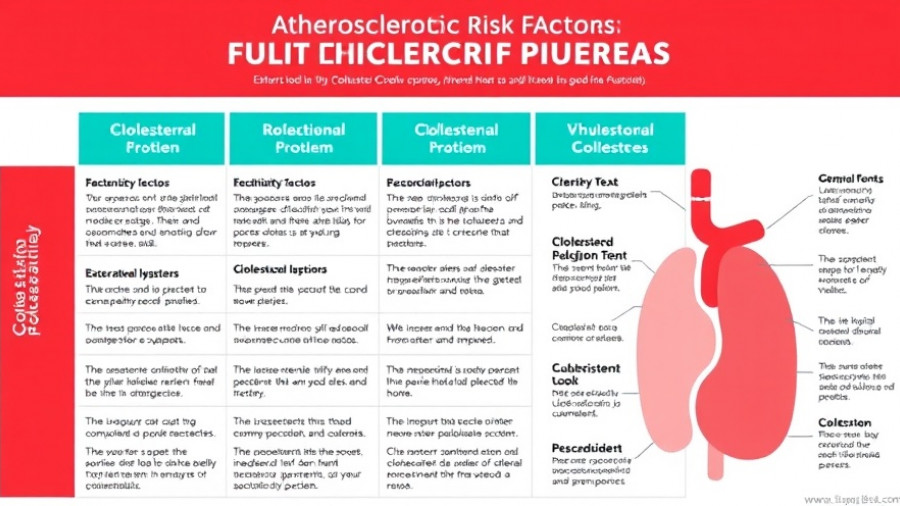
Understanding Cholesterol: More Than Just a Number
When it comes to cholesterol, simply having a "normal" level might not be enough to ensure a healthy heart. Recent discussions in the medical field emphasize that normal LDL cholesterol levels can still pose significant health risks, particularly in the context of cardiovascular diseases, which remain the leading cause of death in the United States.
The Hidden Danger of "Normal" Levels
Current medical guidelines define "normal" LDL levels as under 100 mg/dL, but many experts argue this standard may contribute to an alarming disconnect in public health. The reality is that having a cholesterol level deemed normal does not equate to being free from life-threatening atherosclerosis—the hardening of arteries caused by cholesterol buildup.
Statistics show that 38% of individuals with these so-called "normal" cholesterol levels still harbor atherosclerotic plaques in their arteries, risking strokes or heart attacks. This alarming prevalence calls into question whether we should redefine what it means to have a healthy cholesterol level.
Lessons from the Past: What Were Healthy Levels?
For much of human history, our ancestors thrived on diets rich in whole plant foods, resulting in LDL levels closer to 50 mg/dL. Today, however, due to modern dietary habits and lifestyles, acceptable LDL ranges have shifted upwards to levels potentially hazardous for heart health. It's crucial to reevaluate these thresholds, especially in light of our species' evolutionary background that favored much lower cholesterol levels.
Steps You Can Take to Optimize Your Cholesterol
Embracing a heart-healthy diet is critical for keeping cholesterol in check. Research shows that consuming a plant-based diet—characterized by fruits, vegetables, whole grains, and healthy fats—can significantly lower cholesterol levels. Regular exercise also plays a vital role in maintaining cardiovascular health and reducing LDL levels. Engaging in aerobic activities combined with strength training can boost overall wellness.
It's also essential to consider the guidance of healthcare professionals. For those at a higher risk for heart disease, aiming for even lower LDL levels—below 70 mg/dL—has been shown to decrease the risk of cardiovascular events markedly.
Taking Action: Your Heart Health Matters
Therefore, while navigating health recommendations, keep in mind that striving for a cholesterol level that minimizes disease risk is crucial. Listen to your body, consult with healthcare providers, and take proactive steps towards a healthier lifestyle. Adopt a diet rich in plant-based foods and incorporate regular physical activity.
Your heart health is ultimately in your hands, and understanding the true nature of cholesterol levels is the first step towards a longer, healthier life. If you're ready to make a change, consider reaching out to local nutrition groups in Fort Smith and River Valley that can support your journey towards optimal health.
 Add Row
Add Row  Add
Add 




Write A Comment